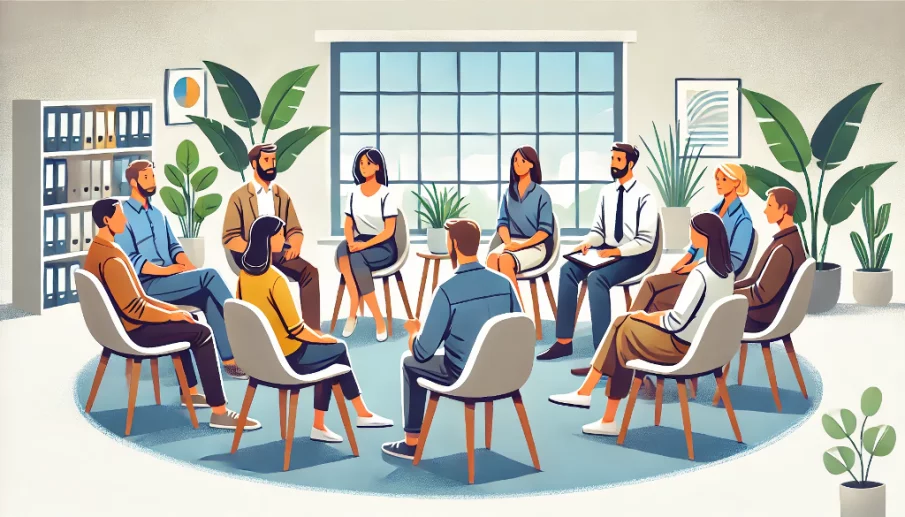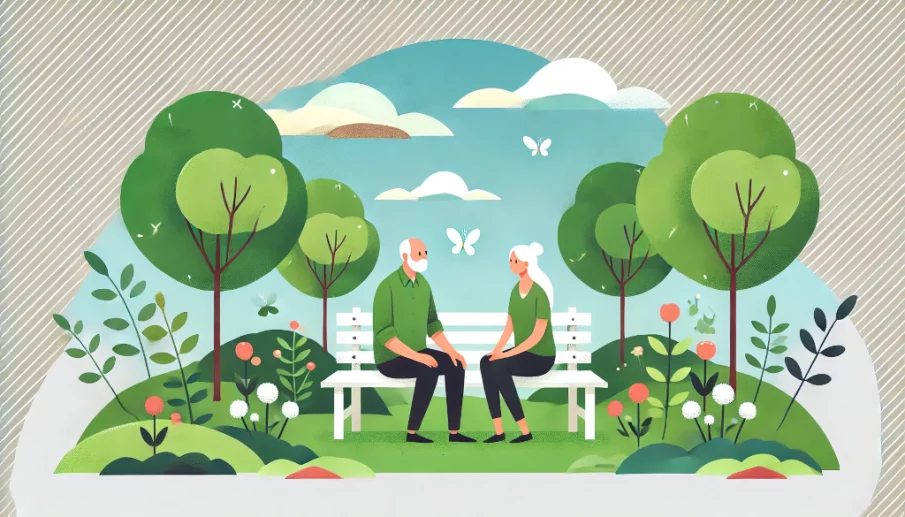Drug Rehab for Couples: What You Need To Know

Addiction is a challenging and often isolating experience, but when both partners in a relationship struggle with substance abuse, the situation becomes even more complex. Drug rehab for couples offers a unique approach to recovery, focusing on the needs of both individuals as well as the relationship itself. This specialized form of treatment can help couples support each other through the recovery process, rebuild their relationship, and achieve lasting sobriety together. In this article, we'll explore the various aspects of drug rehab for couples, including its benefits, the treatment process, and what to look for in a rehab program.
Understanding Drug Rehab for Couples
What is Drug Rehab for Couples?
Drug rehab for couples is a treatment program designed to help both partners in a relationship recover from substance abuse simultaneously. These programs recognize that addiction affects not just the individual but also their relationships, and they offer therapy and support tailored to address both aspects. By participating in rehab together, couples can work on their individual recovery while also repairing and strengthening their relationship.
Why Choose Couples Rehab?
Addiction can create significant strain on relationships, often leading to a cycle of enabling behaviors, mistrust, and conflict. Choosing a rehab program that caters to couples offers several advantages:
- Mutual Support: Partners can support each other through the challenges of withdrawal and recovery.
- Shared Goals: Couples can work towards common recovery goals, fostering a sense of teamwork and collaboration.
- Improved Communication: Therapy sessions can help improve communication and resolve conflicts, creating a healthier relationship dynamic.
- Rebuilding Trust: Joint participation in treatment can help rebuild trust and create a stronger foundation for the future.
Key Components of Couples Rehab Programs
Comprehensive Assessment and Individualized Treatment Plans
Couples rehab programs begin with a comprehensive assessment of each partner's substance abuse history, mental health, and relationship dynamics. This assessment helps create individualized treatment plans that address the specific needs of each person while also focusing on the relationship as a whole.
Detoxification and Medical Support
For couples dealing with substance abuse, detoxification is often the first step. Medical supervision during detox ensures that both partners can safely withdraw from drugs or alcohol. This process is closely monitored to manage withdrawal symptoms and provide necessary medical support.
Individual and Couples Therapy
Therapy is a crucial component of couples rehab. Both individual and couples therapy sessions are offered to address personal issues and relationship dynamics. Therapies may include:
- Cognitive-Behavioral Therapy (CBT): Helps individuals understand and change harmful behaviors and thought patterns.
- Dialectical Behavior Therapy (DBT): Focuses on emotional regulation and developing healthy coping mechanisms.
- Couples Counseling: Addresses relationship issues, improves communication, and fosters mutual support in recovery.
Group Therapy and Support Groups
Participating in group therapy and support groups can be beneficial for couples in rehab. These sessions provide an opportunity to share experiences, gain insights from others facing similar challenges, and build a supportive community. Couples can attend these sessions together, reinforcing their commitment to recovery.
Life Skills and Relapse Prevention
Rehab programs for couples often include life skills training and relapse prevention strategies. These sessions teach practical skills for managing daily stress, avoiding triggers, and maintaining sobriety. Couples learn how to support each other's recovery and develop a plan for handling potential relapse situations.

The Benefits of Drug Rehab for Couples
Strengthened Relationship
Going through rehab together can help couples strengthen their relationship. Shared experiences in treatment, improved communication, and mutual support can lead to a deeper understanding and connection. Couples who complete rehab together often report a stronger, more resilient relationship.
Enhanced Accountability
Having a partner in rehab can enhance accountability. Couples can monitor each other's progress, provide motivation, and hold each other accountable for their actions. This mutual responsibility can be a powerful motivator for maintaining sobriety.
Holistic Healing
Couples rehab programs often take a holistic approach, addressing physical, mental, and emotional aspects of addiction. This comprehensive approach ensures that both partners receive well-rounded care, promoting overall healing and well-being.
Long-Term Support
Rehab is just the beginning of the recovery journey. Couples who complete rehab together can continue to support each other long after the program ends. Ongoing support, whether through continued therapy, support groups, or daily check-ins, can significantly enhance long-term sobriety.
Choosing the Right Couples Rehab Program
Factors to Consider
When selecting a couples rehab program, several factors should be taken into account:
- Accreditation and Licensing: Ensure the facility is accredited and the staff are licensed professionals.
- Treatment Approach: Look for programs that offer evidence-based therapies and a comprehensive treatment plan.
- Environment: Choose a facility that provides a comfortable, supportive environment conducive to healing.
- Continuum of Care: Consider programs that offer a continuum of care, including detox, inpatient, outpatient, and aftercare services.
Questions to Ask
Before committing to a rehab program, it's essential to ask the right questions:
- What is the staff-to-patient ratio?
- What types of therapy and treatment are offered?
- How are treatment plans individualized?
- What is the policy on family involvement?
- What aftercare services are available?
Life After Rehab: Continuing the Journey Together
Aftercare and Ongoing Support
Recovery doesn't end with rehab. Aftercare and ongoing support are crucial for maintaining sobriety. Couples rehab programs often offer aftercare services such as continued therapy, support groups, and follow-up sessions. These resources help couples stay connected to their recovery community and continue their progress.
Building a Healthy Lifestyle
A key aspect of long-term recovery is building a healthy lifestyle. This includes maintaining a balanced diet, regular exercise, and practicing stress management techniques. Couples are encouraged to incorporate these healthy habits into their daily routines, supporting each other's well-being.
Reintegrating into Daily Life
Reintegrating into daily life after rehab can be challenging. Couples may need to make changes to their routines, social circles, and environments to support their sobriety. Ongoing support from therapists, counselors, and support groups can help navigate these changes and maintain a healthy, sober lifestyle.

FAQ: Drug Rehab for Couples
What is drug rehab for couples?
Drug rehab for couples is a treatment program designed to help both partners in a relationship recover from substance abuse simultaneously. These programs address the unique needs of couples, focusing on individual recovery and relationship dynamics.
How does couples rehab differ from individual rehab?
Couples rehab provides therapy and support tailored to the needs of both partners, focusing on improving communication, rebuilding trust, and fostering mutual support. It combines individual and couples therapy to address personal and relationship issues.
Can couples stay together during rehab?
Yes, many couples rehab programs allow partners to stay together during treatment. This arrangement helps them support each other through the recovery process and work on their relationship while receiving treatment.
Is couples therapy included in rehab programs?
Yes, couples therapy is a key component of couples rehab programs. It helps partners address relationship issues, improve communication, and develop strategies for supporting each other's recovery.
What types of therapy are used in couples rehab?
Therapies used in couples rehab include individual therapy, couples counseling, cognitive-behavioral therapy (CBT), dialectical behavior therapy (DBT), and group therapy. These therapies address both individual and relationship dynamics.
How long does couples rehab typically last?
The duration of couples rehab varies depending on the program and the specific needs of the couple. Programs can range from 30 to 90 days or longer, with some offering extended care and aftercare services.
What should we look for in a couples rehab program?
When choosing a couples rehab program, consider factors such as accreditation, treatment approach, environment, staff qualifications, and aftercare services. It's important to find a program that offers comprehensive, evidence-based treatment tailored to your needs.
What happens after completing couples rehab?
After completing rehab, couples can continue their recovery journey with aftercare and ongoing support. This may include continued therapy, support groups, and follow-up sessions to help maintain sobriety and support each other.
Can couples rehab improve our relationship?
Yes, couples rehab can help improve your relationship by addressing underlying issues, improving communication, and fostering mutual support. Many couples report a stronger, healthier relationship after completing rehab together.
How can we support each other during and after rehab?
Supporting each other during and after rehab involves open communication, attending therapy sessions together, practicing healthy coping strategies, and participating in support groups. Encouraging each other's progress and maintaining a healthy lifestyle are also crucial for long-term recovery.
Conclusion
According to experts to write for us on drug rehab, drug rehab for couples offers a unique and effective approach to recovery, allowing partners to support each other through the challenges of addiction and healing. By participating in rehab together, couples can rebuild their relationship, improve communication, and achieve lasting sobriety. If you and your partner are struggling with substance abuse, consider exploring a couples rehab program. Recovery is possible, and taking the journey together can make all the difference.
More to Read:
Previous Posts:


